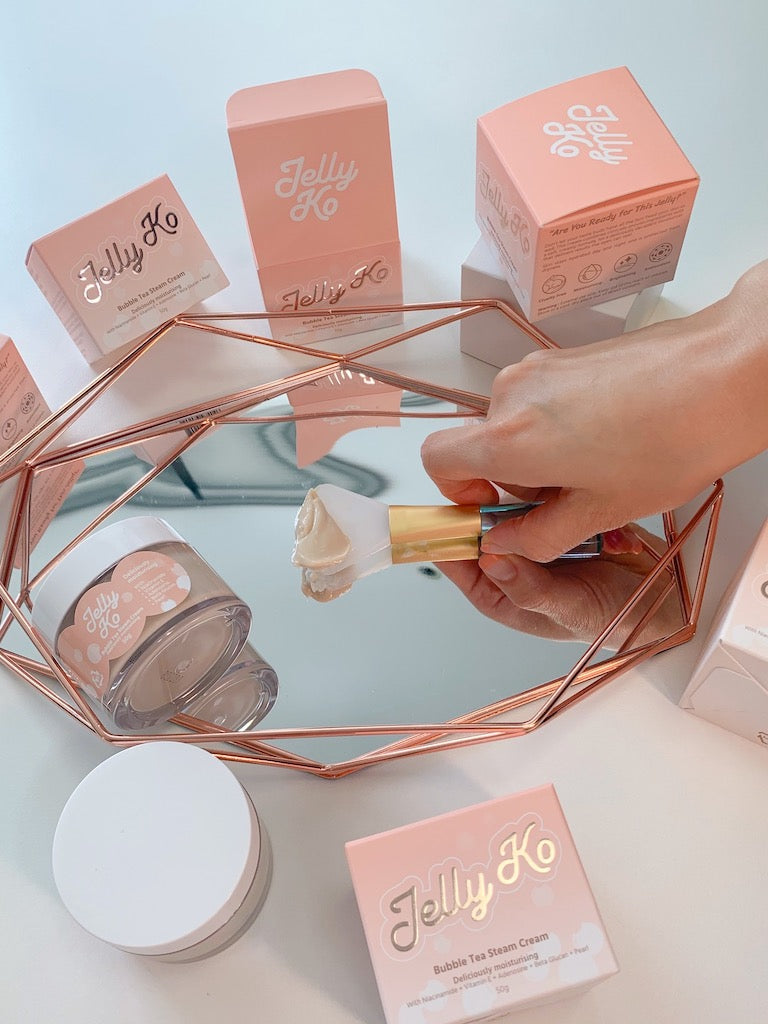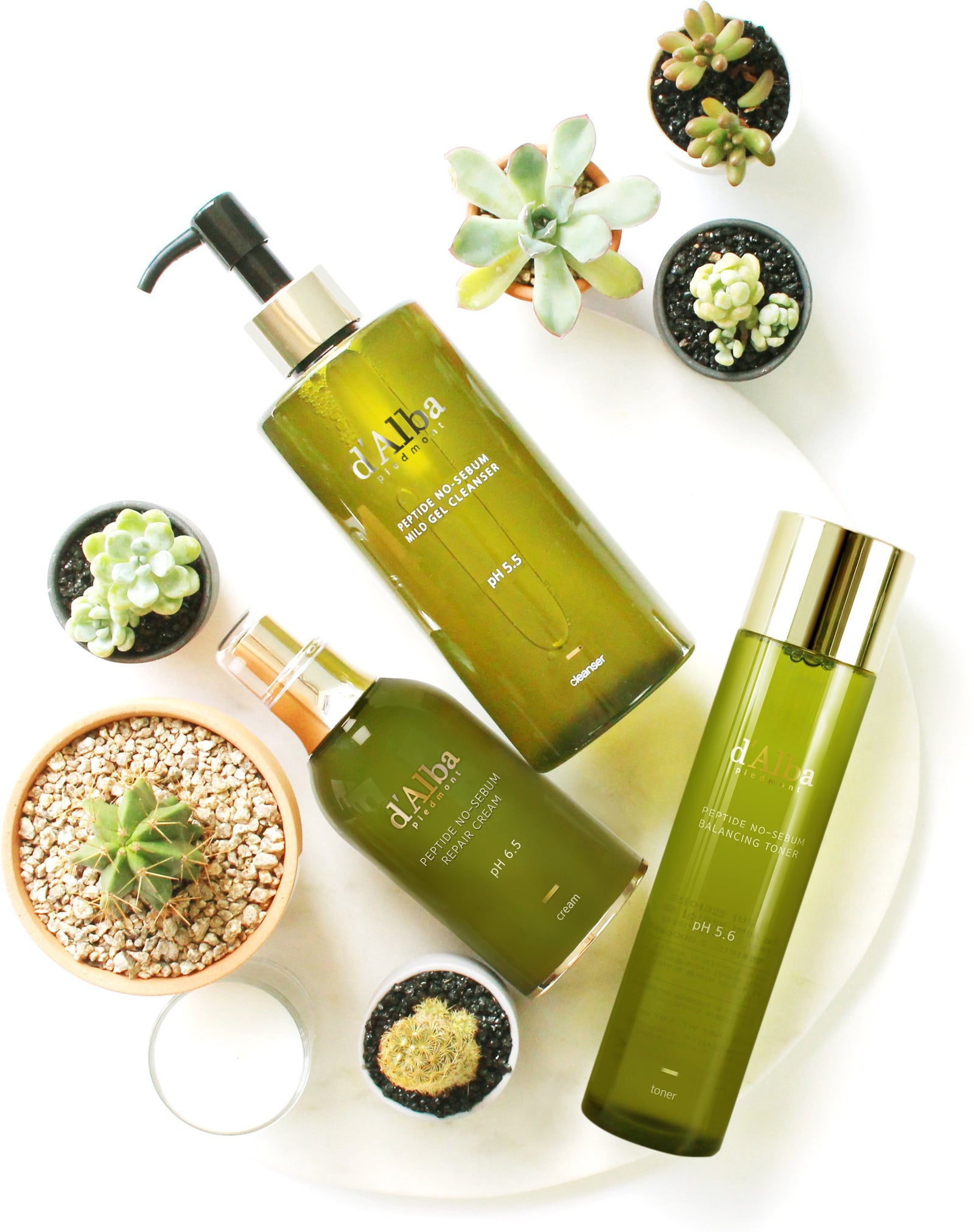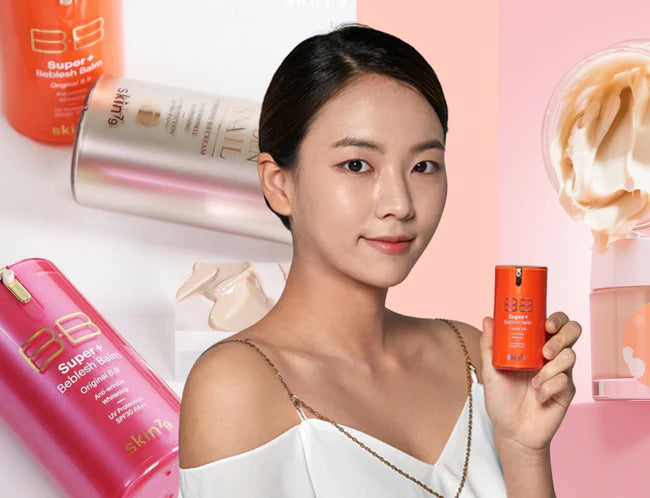The Korean Beauty Show 🎧 Your K-Beauty audio library starts here →
Menu
Is Clean Beauty setting back the future of the Korean cosmetics industry?
March 22, 2022

Is Clean Beauty setting back the future of the Korean cosmetics industry?
Episode 107 of the Korean Beauty Show podcast
Episode Description - Is Clean Beauty setting back the future of the Korean cosmetics industry?
On today’s episode of the Korean Beauty Show, Lauren discusses Ahn In Suk's (Director of the Korea Institute of Dermatological Sciences) latest YouTube video discussing whether the focus on ingredients lists and green grade ratings is setting back the future of the Korean cosmetics industry. Lauren also answers a listener’s question about Korean cleansing sticks.
Episode Summary - Is Clean Beauty setting back the future of the Korean cosmetics industry?
KBEAUTY NEWS HEADLINES: Is the EWG Setting back the future of the Korean cosmetics industry?
Ahn Insuk, Director of Korea’s Institute of Dermatological Sciences believes that green grade rating systems like those used on Hwahae and rating systems like the EWG are actually setting back the future of the Korean beauty industry.
In a video released to her YouTube channel, she explained that she doesn’t think its necessary to check whether cosmetics contain harmful ingredients for the human body.
Ahn Insuk rose to fame throughout the Korean sunscreen scandal, being one of the first to report on brands failing their SPF test that hadn’t previously been reported.
In relation to so-called “harmful ingredients”, she shared that those kind of chemicals (i.e. ingredients) aren't allowed to be used in cosmetics in the first place. And in any event, it doesn’t make sense that cosmetic companies or manufacturers would include harmful ingredients in skincare products. Cosmetic products manufactured in Korea are already thoroughly tested, checked and vetted for safety and stability.

Why do skincare products include an ingredients list?
The reason an ingredients lists is included on products in the first place is so that people who have an allergy or sensitivity can know and avoid it. But those cases are still quite rare (studies indicate approximately 2-5% of the general population will have a fragrance allergy, for example). Particularly when it comes to ingredients in skincare. Now, if we’re talking about chemicals used in hair dyes and industrial chemicals, then the risk profile is different.
Unfortunately, the way bloggers, Youtubers and many in the industry report on it, you’d think everyone has to avoid fragrance, preservatives, parabens and a whole host of other ingredients that cause "sensitivity" etc.
I think a lot of times these comments arise because people reviewing the products think that if they only give positive reviews people will be suspicious. They feel like they have to say something negative about it to seem more credible. This leads to nitpicking with things like the ingredients list. Because most people don't understand product formulation or complex ingredients, they tend to pick things they've heard about or can easily identify on the list to single out as "bad", such as fragrance, essential oils or parabens.
Is it possible to tell if a cosmetic is bad by looking at the ingredients list?
Ahn Insuk believes that it is not possible to tell if a product is "bad" just by looking at the ingredients list. If someone were to given you the ingredients list of a recipe for something like soybean stew, how would you know which recipe is better or which one is more delicious just from looking at the list? The skill is in knowing how to mix it, when to add the right ingredient at the right time, the right temperature etc.

Sensitizing Skincare Ingredients
The other thing she mentioned was that when we say a particular ingredient can be "stimulating" or "sensitizing" we are talking about when that ingredient is used alone, by itself. However, when it is in a cosmetic product, it is mixed in and diluted with a whole host of other ingredients. So even if one ingredient had the potential to be stimulating or irritating on its own, by the time it’s gone through the manufacturing process the physical properties of that ingredient are changed. Similarly, the role it plays in the formulation is also different. Oftentimes, it can actually play a role in assisting the other ingredients.
What function does the EWG serve?
Ahn In Suk's position is that the EWG is redundant because problematic ingredients are already regulated by the FDA, the 식약처 etc.
Even if the EWG does literally nothing there are already about a thousand banned ingredients on the Korean MFDS’s list. She thinks brands with weak brand power rely on EWG green grade as a marketing appeal.
QUESTION OF THE WEEK: What are Cleansing sticks?
- On Korean radio last week I did a segment on 9 types of Korean beauty cleansers. Cleansing sticks were on the list.
- You can’t really beat cleansing sticks for convenience factor — they melt away makeup and leave your face feeling extra clean.
- The stick’s physical exfoliation properties can help to unclog blackheads and impurities.
- JJ Young by Caolion Lab has a great Pore Erasing Stick that's great for oily skin types.

New Korean Beauty Products on STYLE STORY:
Hanyul Yuja Face Oil (30ml)
-
Ideal for those with dull, fatigued, tired looking skin.
-
Containing oil from Yuja (yuzu) fruit peel, this antioxidant enriched oil leaves skin feeling supple and hydrated.
-
As a citrus fruit, Yuja is a natural source of brightening Vitamin C. This Korean Beauty favourite is a great replacement for traditional L-Ascorbic Acid (pure Vitamin C).
-
It is perfect to use in a brightening formula because it contains natural Vitamin C but is more shelf-stable that L Ascorbic Acid.
-
Hanyul's Yuja Face Oil contains 82% Yuja extract, providing skin with a rich antioxidant boost. 5% Niacinamide acts as a brightening powerhouse to help reduce the appearance of spots and dull skin.

Hanyul Pure Artemisia Watery Calming Toner (150ml)
-
This is a calming toner that contains baby mugwort to provide a soothing effect on skin. It can also improve skin's texture and appearance.
-
Baby mugwort is one of K-Beauty's hottest trending ingredients.
-
In traditional Korean medicine, mugwort is known for its “warming” properties.
-
In skincare, mugwort is tremendously soothing.
-
This is great toner for nourishing the skin.
Kbeauty Product Review of the Week:
5 star review for d’Alba Piedmont First Spray Serum:

5 Star Review for One Thing Centella Asiatica Toner
RECOMMENDATION OF THE WEEK
- "If I Had Your Face" by Frances Cha
- Set in Seoul, the book covers the Korean beauty industry, image and cosmetic surgery, prostitution, sexism, classism, and wealth as it tells the story of four women and how their lives intersect.
Did You Enjoy This Episode - Is Clean Beauty setting back the future of the Korean cosmetics industry?
If so, don't forget to leave a rating and review on your favourite podcast app.
STYLE STORY - Your Go-To for Kbeauty
Shop Now
The same people who will point out so-called "bad" ingredients in skincare products often have no issue using regular makeup, hair products and hair dyes. If you actually had a genuine allergy to things like fragrance or parabens, there’s no way you could use these products. You’d actually be very limited in the types of products you could use."
Lauren Lee, Host of the Korean Beauty Show Podcast



Leave a comment
Comments will be approved before showing up.